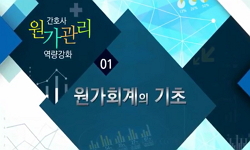Purpose: The purpose of this study was to identify the relationships among trait anger, anger expression, job satisfaction, job commitment, and organizational performance, and especially to verify the effect of anger experience on organizational perfo...
http://chineseinput.net/에서 pinyin(병음)방식으로 중국어를 변환할 수 있습니다.
변환된 중국어를 복사하여 사용하시면 됩니다.
- 中文 을 입력하시려면 zhongwen을 입력하시고 space를누르시면됩니다.
- 北京 을 입력하시려면 beijing을 입력하시고 space를 누르시면 됩니다.


간호사의 특성분노 및 분노표현이 직무만족, 조직몰입, 조직성과에 미치는 영향 = The Relationships among Trait Anger, Anger Expression, Jab Satisfaction, Job Commitment, and Organizational Performance in Clinical Nurses
한글로보기https://www.riss.kr/link?id=A82316737
- 저자
- 발행기관
- 학술지명
- 권호사항
-
발행연도
2009
-
작성언어
Korean
-
주제어
Job satisfaction ; Job commitment ; 간호사 ; 분노 ; 조직성과 ; 직무만족 ; 조직몰입 ; Nurses ; Anger ; Organizational productivity
-
KDC
510
-
등재정보
KCI등재,SCOPUS
-
자료형태
학술저널
-
수록면
539-549(11쪽)
-
KCI 피인용횟수
18
- 제공처
- 소장기관
-
0
상세조회 -
0
다운로드
부가정보
다국어 초록 (Multilingual Abstract)
Purpose: The purpose of this study was to identify the relationships among trait anger, anger expression, job satisfaction, job commitment, and organizational performance, and especially to verify the effect of anger experience on organizational performance. Method: A descriptive study was conducted using a convenient sample. Data were collected by a self-report questionnaire from 671 clinical nurses in three university hospitals and analyzed by using SPSS 14.0 Win program with descriptive statistics, t-test, ANOVA, pearson correlation coefficient, and stepwise multiple regression. Result: Organizational performance was significantly correlated with trait anger, anger expression-in, anger expression-out, anger control, job satisfaction, and job commitment. Multiple regression analysis showed that organizational performance was significantly predicted by job commitment, job satisfaction, educational level (university graduation), anger control, and working place (operative room), and 34.7% was explained by these variables. Conclusions: Out of anger expression, anger control significantly affected on organizational performance together with job commitment and job satisfaction. From this result, it could be concluded that nursing intervention for anger control have a positive effect on improving organizational performance. Further studies are needed to develop and test the effect of nursing intervention programs for anger control.
참고문헌 (Reference)
1 박현주, "임상간호사의 정서노동, 정서표현과 소진" 간호행정학회 15 (15): 225-232, 2009
2 이원희, "일 의료기관 종사자의 분노표현유형과 건강상태" 한국간호과학회 36 (36): 821-828, 2006
3 이평숙, "암 환자의 지각된 스트레스,분노표현방식 및 우울간의 관계" 한국간호과학회 35 (35): 195-205, 2005
4 신미경, "노인의 신체화 증상 영향 요인 분석" 성인간호학회 22 (22): 211-220, 2010
5 Lee, W. H., "The relationship bewteendepression, perceived stress, fatigue and anger in clinicalnurses" 36 (36): 925-932, 2006
6 Son, S. E., "The patterns of personality and anger expression inthe patients with colorectal canser" 39 (39): 507-515, 2000
7 Mowday, R. T., "The measurement of organizational commitment" 14 : 216-223, 1979
8 Spielberger, C. D., "The experience andexpression of anger: Construction and validation of an angerexpression scale in:Anger and hostility in cardiovascular and behavioral disorders" Hemisphere 5-30, 1985
9 Ban, Y. R., "The effect if communication satisfaction and jobsatisfaction in the nursing performance of hospital nurses" Chungang University 2007
10 Jeung, J. H., "Structural equation modeling in nursingproductivity of nurses in a hospital" 2007
1 박현주, "임상간호사의 정서노동, 정서표현과 소진" 간호행정학회 15 (15): 225-232, 2009
2 이원희, "일 의료기관 종사자의 분노표현유형과 건강상태" 한국간호과학회 36 (36): 821-828, 2006
3 이평숙, "암 환자의 지각된 스트레스,분노표현방식 및 우울간의 관계" 한국간호과학회 35 (35): 195-205, 2005
4 신미경, "노인의 신체화 증상 영향 요인 분석" 성인간호학회 22 (22): 211-220, 2010
5 Lee, W. H., "The relationship bewteendepression, perceived stress, fatigue and anger in clinicalnurses" 36 (36): 925-932, 2006
6 Son, S. E., "The patterns of personality and anger expression inthe patients with colorectal canser" 39 (39): 507-515, 2000
7 Mowday, R. T., "The measurement of organizational commitment" 14 : 216-223, 1979
8 Spielberger, C. D., "The experience andexpression of anger: Construction and validation of an angerexpression scale in:Anger and hostility in cardiovascular and behavioral disorders" Hemisphere 5-30, 1985
9 Ban, Y. R., "The effect if communication satisfaction and jobsatisfaction in the nursing performance of hospital nurses" Chungang University 2007
10 Jeung, J. H., "Structural equation modeling in nursingproductivity of nurses in a hospital" 2007
11 Nunnally, J. C., "Psychometric theory" McGraw-Hill 1994
12 Kim, S. H., "Perceived stress, life style, healthstatus indicators in medical center employees" 17 (17): 407-418, 2006
13 Lichtenstein, R., "Measuring the job satisfaction ofphysican's in organized setting" 22 (22): 56-58, 1984
14 Chon, K. K., "Korean adaptation of the state-trait inventory: anger and blood pressure" 2 (2): 60-78, 1997
15 Henderson, A., "Emotional labor and nursing: anunder-appreciated aspect of caring work" 8 (8): 130-138, 2001
16 Salovey, P., "Emotional Intelligence" Basic books 1990
17 Kim, K. H., "Effects of anger, hostility,and stress on physical health" 2 (2): 79-95, 1997
18 Jung, H. Y., "Effectiveness of emotional leadership and emotionalintelligence of foodservice employees on organizational performance incontracted foodservice management company" Yonsei University 2006
19 Engin E., "Correlation between psychiaticnurses' anger and job motivation" 20 (20): 268-275, 2006
20 Kavan, M. G., "Colon cancer:personality factors predictive of onset and stage ofpresentation" 39 : 1031-1039, 1995
21 Goldman, D., "Angerexpression, gender, and ambulatory blood pressure in mild,unmediated adults with hypertension" 22 : 60-64, 2000
22 Thomas, S. P., "Anger: The mismanaged emotion" 12 (12): 103-110, 2003
23 Lee, J. L., "Anger, anxiety, depression in theworkplace-differences of evoking causes and coping methodsamong emotions, relationships of emotion regulation andpsychological well-being, job effectiveness" 16 (16): 19-58, 2003
24 Fitzgerald, S. T., "Anger in young black and white workers:effects of job control, dissatisfaction, and support" 26 (26): 283-296, 2003
25 Park, S. A., "An exploratory study in the relationship betweenleadership style and performance in Korean nursing units" Seoul National University 1988
26 Shirey, M. R., "An evidence based solution for minimizing stress and anger in nursing students" 46 (46): 568-571, 2007
27 Park, H. S., "A study onanger expression and burnout of psychiatic mental healthnurses" 12 (12): 235-244, 2003
28 Shim, M. Y., "A study on the correlation amongtransformational and transactional leadership of head nurse, jobsatisfaction, organizational commitment, and job performance ofnurses" Kwandong University 2004
29 Kim, K. S., "A study on nurses' emotional intelligence, nursingperformance, organizational commitment, and turnover intension" Sungkyunkwan University 2005
동일학술지(권/호) 다른 논문
-
간호사의 감정노동과 소진, 이직의도와의 관계에서 자기효능감과 사회적 지지의 역할
- 대한간호학회 간호행정학회
- 김인순
- 2009
- KCI등재,SCOPUS
-
- 대한간호학회 간호행정학회
- 홍지연
- 2009
- KCI등재,SCOPUS
-
- 대한간호학회 간호행정학회
- 김창희
- 2009
- KCI등재,SCOPUS
-
간호사의 직무스트레스와 노인에 대한 지식, 태도 및 케어실천행위
- 대한간호학회 간호행정학회
- 윤숙희
- 2009
- KCI등재,SCOPUS
분석정보
인용정보 인용지수 설명보기
학술지 이력
| 연월일 | 이력구분 | 이력상세 | 등재구분 |
|---|---|---|---|
| 2020 | 평가예정 | 계속평가 신청대상 (등재유지) | |
| 2015-01-01 | 평가 | 우수등재학술지 선정 (계속평가) | |
| 2013-12-01 | 학술지명변경 | 외국어명 : Korean Academy of Nursing Administration -> Journal of Korean Academy of Nursing Administration |  |
| 2011-01-01 | 평가 | 등재학술지 유지 (등재유지) |  |
| 2008-01-01 | 평가 | 등재학술지 선정 (등재후보2차) |  |
| 2007-01-01 | 평가 | 등재후보 1차 PASS (등재후보1차) |  |
| 2005-01-01 | 평가 | 등재후보학술지 선정 (신규평가) |  |
학술지 인용정보
| 기준연도 | WOS-KCI 통합IF(2년) | KCIF(2년) | KCIF(3년) |
|---|---|---|---|
| 2016 | 2.98 | 2.98 | 2.75 |
| KCIF(4년) | KCIF(5년) | 중심성지수(3년) | 즉시성지수 |
| 2.86 | 2.96 | 4.597 | 0.32 |




 RISS
RISS DBpia
DBpia







